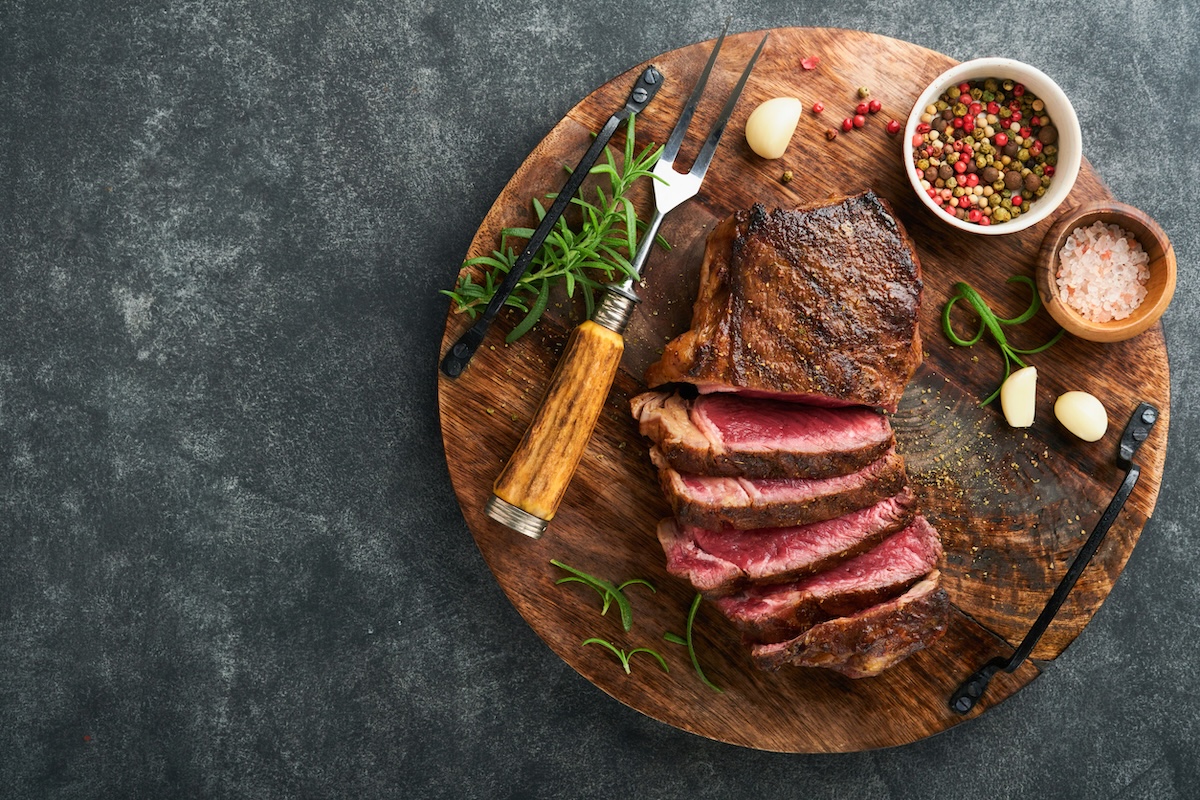As far as cattle ranchers go, Rex Moore looks the part. For many of his restaurant customers, his voluminous white beard, stiff cowboy hat, and jovial attitude were early selling points. But it was the quality of the bison that sealed the deal.
Moore owns Rock River Ranches, a multi-property operation where majestic beasts grow from infancy. Once the bison have aged, Moore processes the meat and hand-delivers finished products to some of the best spots in town. He provides every kind of cut, and even prepares whole goods like pastrami and meatballs for his most dedicated customers.
“When I first met Rex, he pulled up in a van and almost hit my sous [chef], ” said Ryan Rau, executive chef at Urban Farmer. “This was before we even opened and Rex knocking at the door is what made bison get on the menu.”
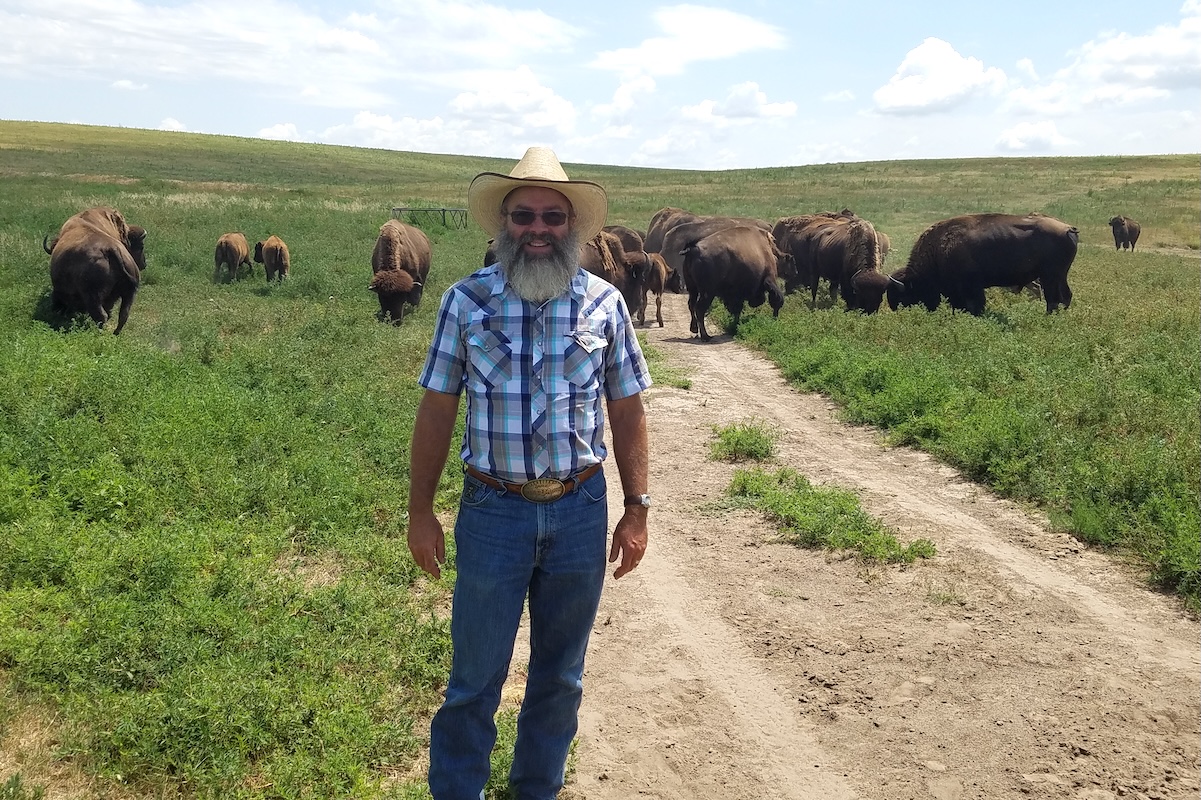
Moore remembers that meet cute a little differently. “I was on a date night with my wife and I dropped a business card,” he said. Either way, Urban Farmer now features a 20-ounce, dry-aged bison porterhouse ($92), Beef & Bison Chile ($14), and the option to add on a 6-ounce bison steak to the tasting board ($40).
Like Rau, other chefs flock to Rock River Ranches because of the quality bison it provides for restaurants. As for Moore, he shows no signs of stopping.
Stampeding Into Rex Moore’s History
Moore and his family have been in the ranching and farm game a long time. His grandfather, Ray Rex Moore Senior, a sheep herder, homesteaded near Fort Bridger, WY, in 1923. His father, Ray Rex Junior, grew up in the livestock business and attended Colorado State University where he got a degree in animal science in 1958.
In 1972, Moore started a cattle company specializing in Salers cattle, a French breed, he said, that his father helped to bring to the area. In 1986, Moore started the Maverick Ranch Association with a focus on Natural Lite, his brand of extra lean beef. Eventually the business grew into a $60-million a year cash cow that served over 2,000 grocery stores across the United States.
Then in 2009, Moore licensed the business to an employee. In 2016, Moore bought a small herd in Cody, Wyo., and moved it to Kansas. That was the beginning of Rock River Ranches.
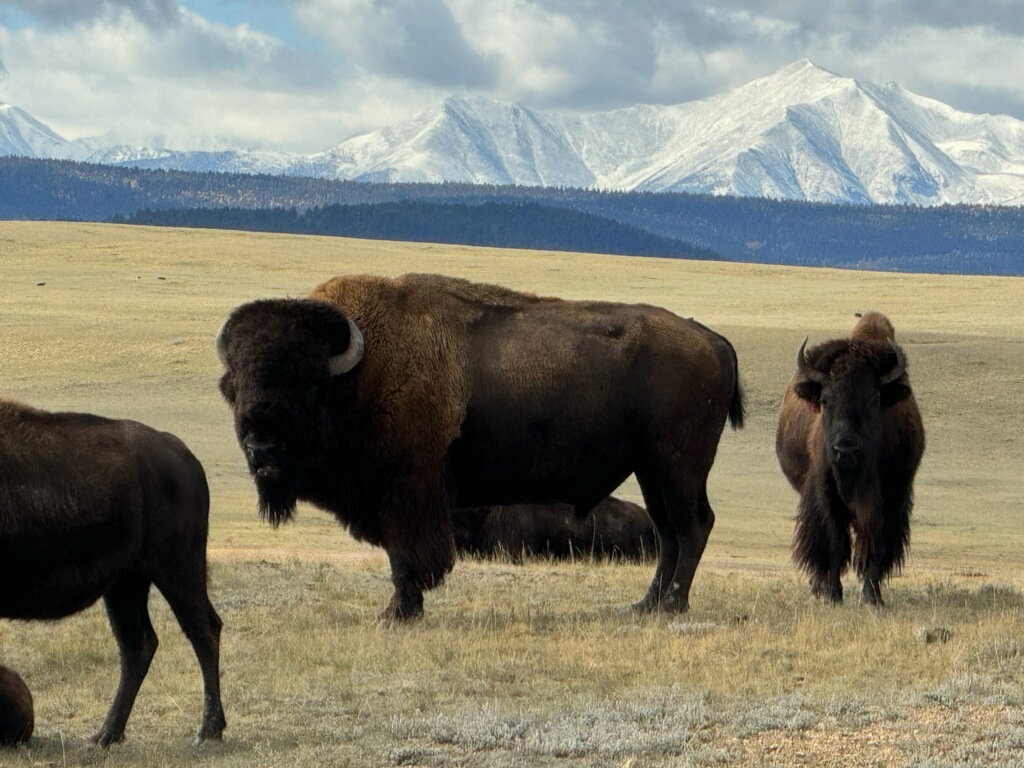
Rock River Ranches Today
Rock River Ranches now has plenty of acres around Colorado. The bulk of Moore’s herd roams in Hartsel, just outside Fairplay. Here he keeps 65 to 75 mother cows, and that many or more calves on a rotational property. He also has a seasonal herd in Hudson, where chefs can visit about 35 animals. This smaller plot of land is roughly 30 minutes north of Denver.
“It’s my teaching herd,” said Moore. When it’s warm enough, Moore will host a lunch or dinner with the bison, where he takes up to 50 chefs to the field to learn about the creature’s history and importance, as well as to enjoy some of the spoils under the open air. “I used to fly them to Kansas. But after we had some engine failure I quit that.”
Bison in the Restaurants and on the Plate
The way Denver chefs use bison ranges from simple, classic preparations to ornate rethinkings and high gastronomy. Folks can get house-braised bison ribs with berry barbecue sauce at Tocabe: An American Indian Eatery. Or they might find the Heart Beet at BRUTØ, where chef Byron Gomez takes dehydrated bison heart and converts it into a katsuobushi, a fermented shaving akin to bonito.
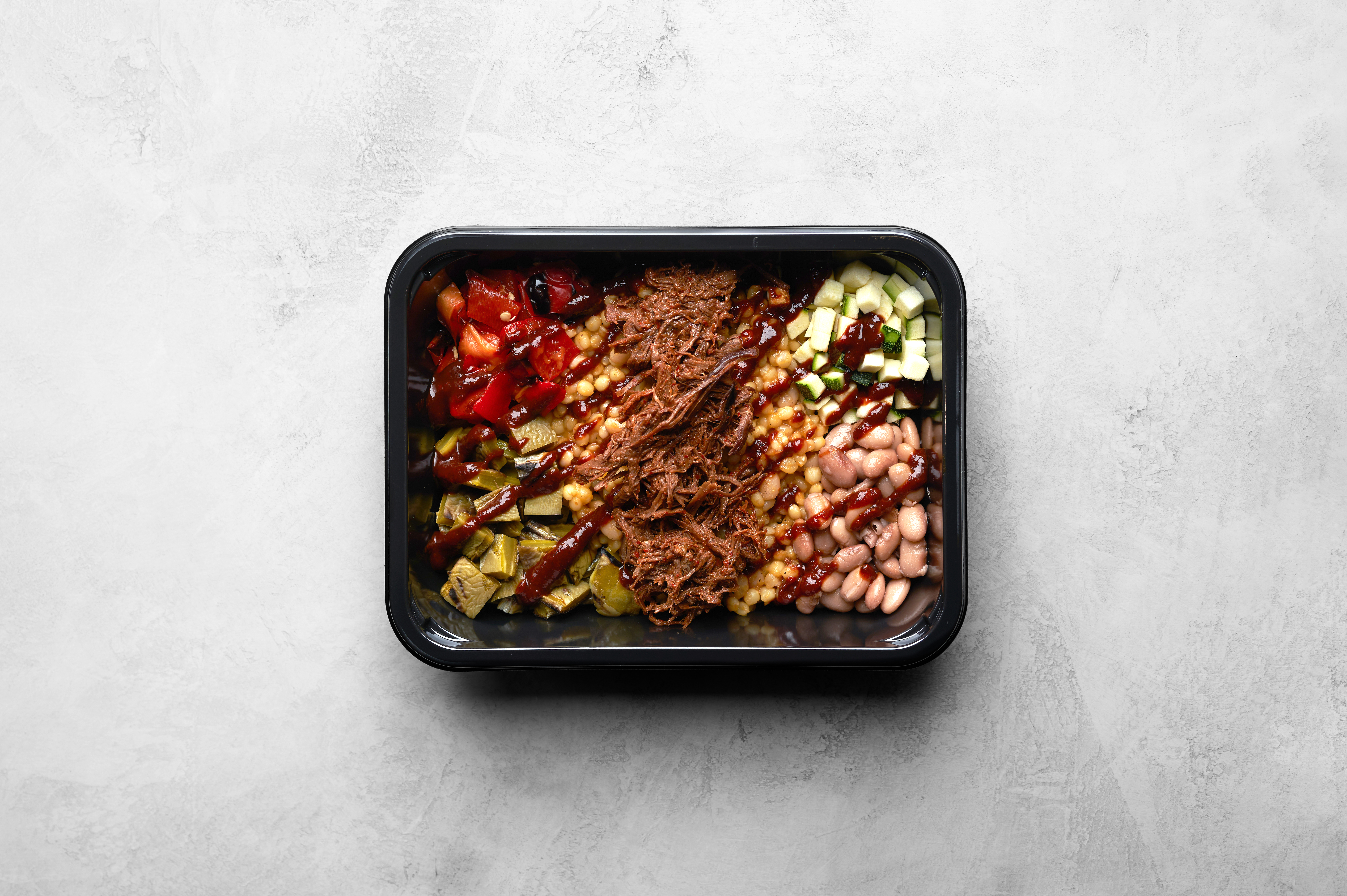
“I know that animals that are fed alike, eat alike,” said Moore. “If I want consistency at the restaurant level, I have to make sure [the bison] are treated the same.”
Moore and a small three-person team deliver to around 50 restaurants. Most of those, he said, share his passion for the product and understand the importance of bison. Philosophy aside, chefs are also turning to River Rock for the meat’s flavor and consistency.
“It’s hard to discuss the history of Colorado agriculture without talking about bison,” said The Wolf Tailor’s executive chef, Taylor Stark, who met Rex while doing a three year stint at Urban Farmer.
Stark is an adamant bison supporter who does not serve beef in the restaurant. Instead, he leans toward bison as the main red meat. The menu currently features a bison striploin marinated in spruce tip Shio koji that lands atop caramelized wild rice cooked in rendered duck fat, and topped with smoked mushroom, XO sauce, and Napa cabbage kimchi.

Over at Appaloosa Grill in Downtown Denver, chef Kert Eggers remains one of Moore’s biggest customers. There he serves bison ribeye, a bison pastrami reuben, and bison bone marrow, served with port wine grapes and garlic crostini. Over all, added the chef, he gets around eight or nine items, and meets up with the rancher once a week. For anyone seeking an indulgent use, Tavernetta just started plating a pappardelle chock-full of bison oxtail.
“We tend to use some of the less popular cuts,” said Tavernetta’s executive chef, Cody Cheetham. “It’s how we keep him in business and it helps us stay in business.”
Growing the Bison Herd
With the continued accolades, Moore’s business has been steadily growing. His goal, he said, is to have 100 restaurant locations in Colorado. Given all of Moore’s clients stress the importance of the tight-knit relationship they’ve developed with the rancher, it expanding certainly sounds promising.
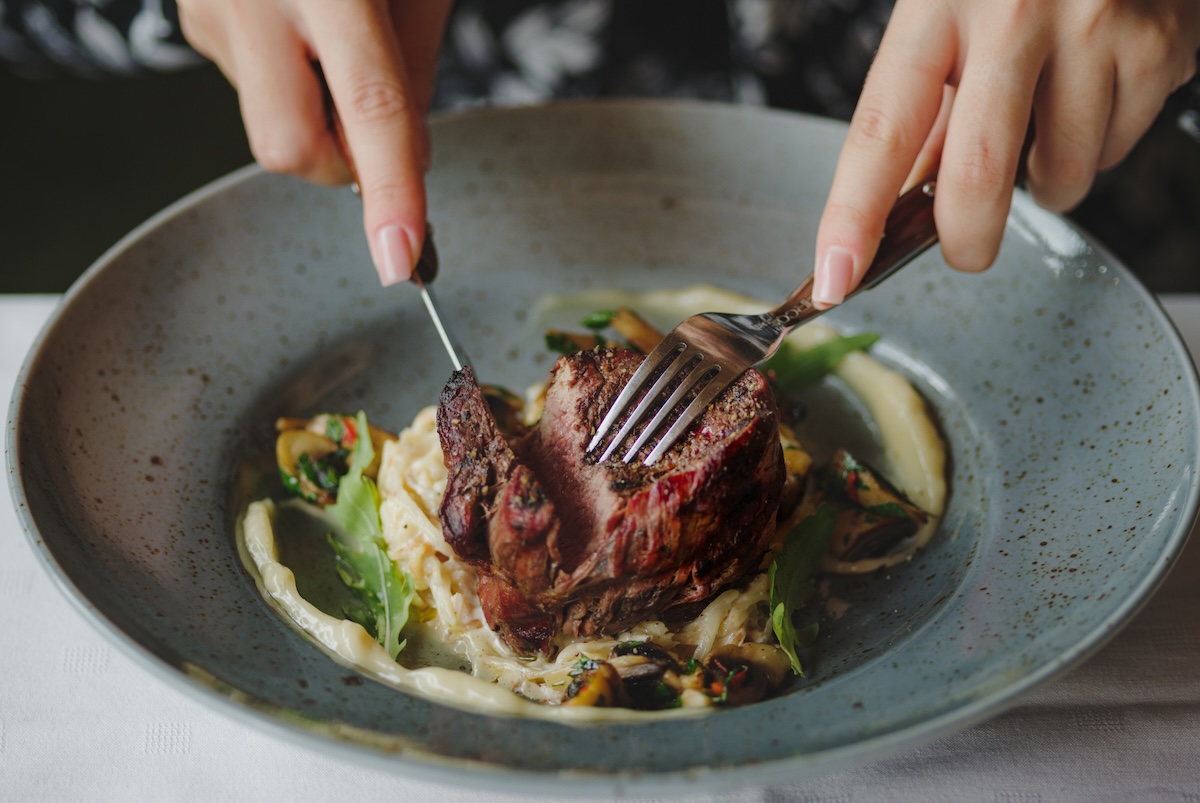
“A big part of our ethos is making connections,” said Stark. “There’s zero intimacy to the product if you don’t know the producer.”
In turn, Moore also values his relationships with the chefs. Aside from feeding Colorado, Moore noted his involvement with the ranch and the large bovine is part of a larger calling.
”I guess I’m part of something bigger in helping to bring back the species,” he said. “I just love the animal. They’re smart, they’re trainable, and they’re big and fluffy.”
But despite the joy of watching the animal thrive again, Moore finished with the comment, “We have to eat bison to restore bison.”
Luckily, thanks to Rock River Ranches, bison is getting into the hands of more chefs, the bellies of more diners, and the hearts of anyone wanting to lean into sustainable farm practices and eat whole, natural foods.

